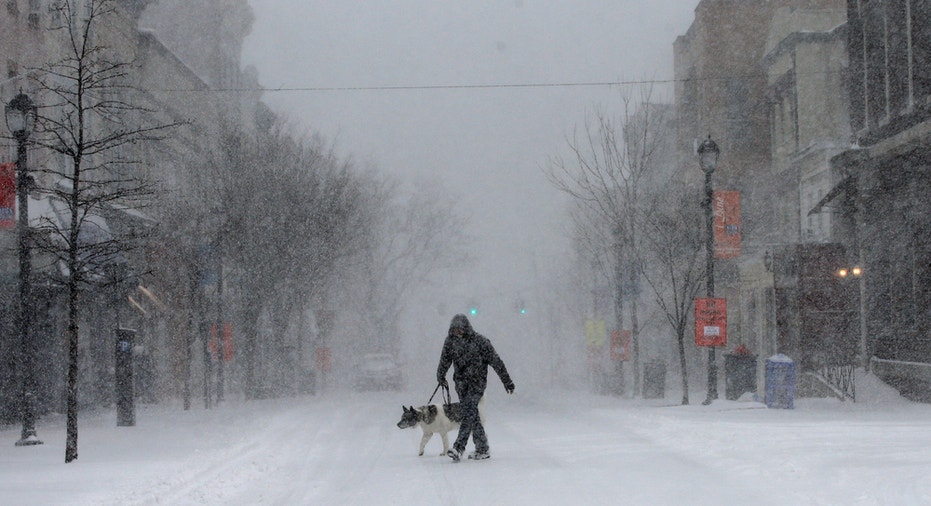Flights Canceled, Schools Closed as Snow Wallops U.S. Northeast

The fiercest storm of the winter slammed the northeastern United States on Thursday, leaving a foot (30 cm) of snow in places, forcing cancellation of thousands of flights and closing schools.
The storm, which came a day after temperatures had been a spring-like 50 to 60 degrees (10 to 16C), had wind gusts up to 50 miles per hour (80 kph) and left roads and sidewalks dangerously slick in densely populated cities such as New York, Boston and Philadelphia.
Some areas had "thunder snow," violent bursts of weather featuring both snow and lightning, which could drop as much as 4 inches (10 cm) of snow per hour. Some coastal roads around Boston were closed as wind-driven waves washed over them.
All flights at New York's John F. Kennedy International Airport were halted on Thursday morning due to the storm's intensity. More than half of the flights into or out of the three major New York-area airports as well as Boston Logan International Airport were canceled.
Nationwide, about 3,200 flights were canceled, according to Flightaware.com.
"This is an unusually fast, intense storm," New York Mayor Bill de Blasio told reporters. "It's very tough conditions out there."
David Hassan, 50, attested to the ugliness of the weather as he packed up his mobile coffee cart in New York's Times Square.
"I don't like coming out in this weather but I have three kids going to school and I have to work," Hassan said as he prepared for the two-hour trip back to his home in Parsippany, New Jersey.
The snow made his regular customers grumpier than usual, he said: "Everybody complains."
New York was expecting 10 to 14 inches (25-36 cm) of snow while Boston braced for even more.
"Travel is going to be extremely dangerous. When it comes down at 2 to 3 inches per hour it's hard for the plows to keep up," said Alan Dunham, a National Weather Service meteorologist in Taunton, Massachusetts.
Many schools systems were closed in the area, including Boston, Philadelphia and New York City, the nation's largest with more than 1 million students.
Many government offices also were shuttered with Massachusetts and Connecticut ordering non-emergency workers to stay home.
Blizzard warnings were in effect for the New York's eastern Long Island suburbs, southern Connecticut, Rhode Island and Massachusetts.
Temperatures were expected to fall to single-digit Fahrenheit levels (below -12.8 C) overnight in the Boston area.
(By Scott Malone and Jonathan Allen; Additional reporting by Gina Cherelus in New York and Svea Herbst-Bayliss in Providence, Rhode Island; Editing by Larry King and Bill Trott)



















